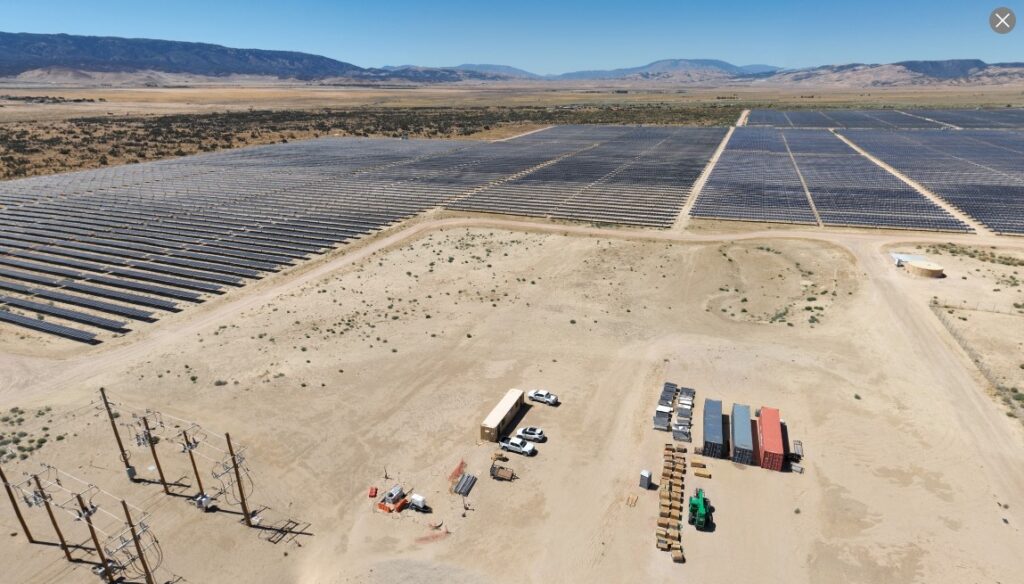Published: Wednesday, July 18, 2018
PIONEER COMMUNITY ENERGY OPENS TO SOLAR CUSTOMERS, MANY ENROLL EARLY
Pioneer Community Energy opened enrollment to solar customers in early June 2018 and has seen more than 250 solar owners choose to join Pioneer early, taking advantage of Pioneer’s lower rates.
“We established Pioneer Community Energy to provide lower rates and the opportunity to have local control over electric generation rates and programs,” said Bridget Powers, Mayor of Auburn and Pioneer Board member. “As a not-for-profit, local government agency supplier of electricity, we have been able to provide residents, businesses, schools, libraries, seniors, basically everyone within Pioneer’s service territory, with lower electric generation rates.”
Pioneer has scheduled six enrollment phases for solar customers starting in September 2018. Pioneer will automatically enroll solar customers, based on their net energy metering true-up date, unless they choose to remain with PG&E. Many solar customers have chosen not to wait for automatic enrollment – they chose to join Pioneer early. After an initial notice to solar customers was sent in mid-June with information about Pioneer’s lower rates and the phasing schedule of automatic enrollment based on customers’ net energy metering true-up anniversary date, Pioneer saw an influx of requests to enroll.
“My true-up with PG&E was about $1,100, so the sooner I could get off the higher rates, the better,” said Suzi DeFosset, solar owner in Auburn. “I liked the lower rates and higher buy back rate – that’s more savings for me.”
With the average residential electric generation savings of 7.5%, Pioneer estimates savings to its electric customers in the unincorporated area of Placer County and the cities of Auburn, Colfax, Lincoln, Rocklin, and the Town of Loomis to be about $10 million, annually. The savings stay in the wallets of the people here in Placer County.
The Pioneer Board has set conservative fiscal policies with an eye to setting the new organization on a sound financial path to provide greater benefits over the long-term.
“The Pioneer Board’s focus has been on maintaining low operating costs, establishing reserves and repaying debt as the top priorities,” said Peter Gilbert, Lincoln City Councilmember and Pioneer Board member. “We are doing well in all of those areas.”
Pioneer’s expenses, to date, have been primarily for the purchase electricity, which accounts for about 90% of its electric program budget. At approximately 10% of the budget, operating costs are low. The conservative reserve policy set by the Pioneer Board will protect ratepayers against energy market price shocks for up to one year, when fully funded. Based on the 2018-19 Budget adopted by the Pioneer Board, approximately $7 million in reserves are expected to be set aside by June 30, 2019, achieving an 80% funding level after only 17 months of operation.
Subject to repayment, Placer County provided funding for the new program’s feasibility study and program implementation at a cost of $1.5 million. Pioneer has already repaid the County in full. Separately, Pioneer has a $40 million line of credit from the County Treasury. Prior to receiving revenue from its first billing cycles, Pioneer had borrowed $18 million on the line of credit, primarily for the purchase of electricity and to support initial operations. Since receiving revenues from its first billing cycles, Pioneer has repaid $ 3.3 million on the line of credit, dropping its outstanding balance to $14.7 million. Under its current operating goals, Pioneer expects to establish all of its reserves in less than two years and pay off the line of credit within three years.
“The ability to quickly fund reserves in full, and repay debt, is due to conservative financial planning and prudent financial stewardship, which have always been a cornerstone in the development and implementation of Pioneer’s electric generation program,” stated Jenine Windeshausen, Placer County Treasurer and interim Executive Director for Pioneer Community Energy.
Given its ability to set a sound financial foundation by being able to quickly establish reserves and payoff its debt, Pioneer was able to give its ratepayers a significant benefit in February 2018, when PG&E raised its rates an average of 9% across all of its rate schedules. By holding the rates Pioneer established in December of 2017, which were then 3% less than PG&E’s rates across all rate schedules, Pioneer customers saw greater rate savings, based on the amount PG&E raised each rate schedule. For E-1 rates, the most common residential rate, the savings increased to 7.54%. Since the PG&E increases to commercial and agricultural rates were greater, those customers have seen even more savings.
“The Pioneer Board decided not to change our rates in response to PG&E’s increase,” said Kirk Uhler, Placer County Supervisor for District 4 and Pioneer Board member. “Not changing our rates meant that for all rate schedules, Pioneer customers not only saved Pioneer’s original 3% discount, but also saved the PG&E rate increase. Our discount was greater for everyone. That’s the benefit of local control.”
The deep discount encouraged many customers who had originally opted out, to enroll in Pioneer and the savings it provides.
In the near future, the Pioneer Board will begin to look at additional programs that benefit ratepayers. The Pioneer Board will be considering a process and forums to gather input from the community for program ideas and guidance.
“Our meetings are always open to the public, and we welcome community input,” said Jennifer Montgomery, Placer County Supervisor for District 5 and Pioneer Board Chair. “Pioneer Community Energy is about meeting the needs, expectations, and priorities of our communities here in Placer County.”
Information about Pioneer Community Energy solar NEM program, rates, Board meetings, and more information please contact your Pioneer Community Energy team by email at info@pioneercommunityenergy.org or by phone at (916) 758-8969 or 1 (844) YES–PIONEER.







